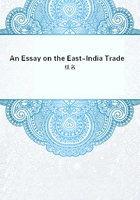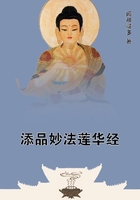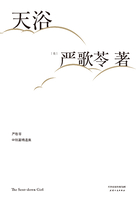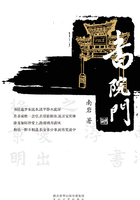(1) First, the foundation of his argument is laid in the Metaphysics of Aristotle. But we cannot argue, either from the Metaphysics, or from any other of the philosophical treatises of Aristotle, to the dialogues of Plato until we have ascertained the relation in which his so-called works stand to the philosopher himself. There is of course no doubt of the great influence exercised upon Greece and upon the world by Aristotle and his philosophy. But on the other hand almost every one who is capable of understanding the subject acknowledges that his writings have not come down to us in an authentic form like most of the dialogues of Plato. How much of them is to be ascribed to Aristotle's own hand, how much is due to his successors in the Peripatetic School, is a question which has never been determined, and probably never can be, because the solution of it depends upon internal evidence only. To 'the height of this great argument' I do not propose to ascend. But one little fact, not irrelevant to the present discussion, will show how hopeless is the attempt to explain Plato out of the writings of Aristotle. In the chapter of the Metaphysics quoted by Dr.
Jackson, about two octavo pages in length, there occur no less than seven or eight references to Plato, although nothing really corresponding to them can be found in his extant writings:--a small matter truly; but what a light does it throw on the character of the entire book in which they occur! We can hardly escape from the conclusion that they are not statements of Aristotle respecting Plato, but of a later generation of Aristotelians respecting a later generation of Platonists. (Compare the striking remark of the great Scaliger respecting the Magna Moralia:--Haec non sunt Aristotelis, tamen utitur auctor Aristotelis nomine tanquam suo.)(2) There is no hint in Plato's own writings that he was conscious of having made any change in the Doctrine of Ideas such as Dr. Jackson attributes to him, although in the Republic the platonic Socrates speaks of 'a longer and a shorter way', and of a way in which his disciple Glaucon 'will be unable to follow him'; also of a way of Ideas, to which he still holds fast, although it has often deserted him (Philebus, Phaedo), and although in the later dialogues and in the Laws the reference to Ideas disappears, and Mind claims her own (Phil.; Laws). No hint is given of what Plato meant by the 'longer way' (Rep.), or 'the way in which Glaucon was unable to follow'; or of the relation of Mind to the Ideas. It might be said with truth that the conception of the Idea predominates in the first half of the Dialogues, which, according to the order adopted in this work, ends with the Republic, the 'conception of Mind' and a way of speaking more in agreement with modern terminology, in the latter half.
But there is no reason to suppose that Plato's theory, or, rather, his various theories, of the Ideas underwent any definite change during his period of authorship. They are substantially the same in the twelfth Book of the Laws as in the Meno and Phaedo; and since the Laws were written in the last decade of his life, there is no time to which this change of opinions can be ascribed. It is true that the theory of Ideas takes several different forms, not merely an earlier and a later one, in the various Dialogues. They are personal and impersonal, ideals and ideas, existing by participation or by imitation, one and many, in different parts of his writings or even in the same passage. They are the universal definitions of Socrates, and at the same time 'of more than mortal knowledge' (Rep.). But they are always the negations of sense, of matter, of generation, of the particular: they are always the subjects of knowledge and not of opinion; and they tend, not to diversity, but to unity. Other entities or intelligences are akin to them, but not the same with them, such as mind, measure, limit, eternity, essence (Philebus;Timaeus): these and similar terms appear to express the same truths from a different point of view, and to belong to the same sphere with them. But we are not justified, therefore, in attempting to identify them, any more than in wholly opposing them. The great oppositions of the sensible and intellectual, the unchangeable and the transient, in whatever form of words expressed, are always maintained in Plato. But the lesser logical distinctions, as we should call them, whether of ontology or predication, which troubled the pre-Socratic philosophy and came to the front in Aristotle, are variously discussed and explained. Thus far we admit inconsistency in Plato, but no further. He lived in an age before logic and system had wholly permeated language, and therefore we must not always expect to find in him systematic arrangement or logical precision:--'poema magis putandum.' But he is always true to his own context, the careful study of which is of more value to the interpreter than all the commentators and scholiasts put together.
(3) The conclusions at which Dr. Jackson has arrived are such as might be expected to follow from his method of procedure. For he takes words without regard to their connection, and pieces together different parts of dialogues in a purely arbitrary manner, although there is no indication that the author intended the two passages to be so combined, or that when he appears to be experimenting on the different points of view from which a subject of philosophy may be regarded, he is secretly elaborating a system.















